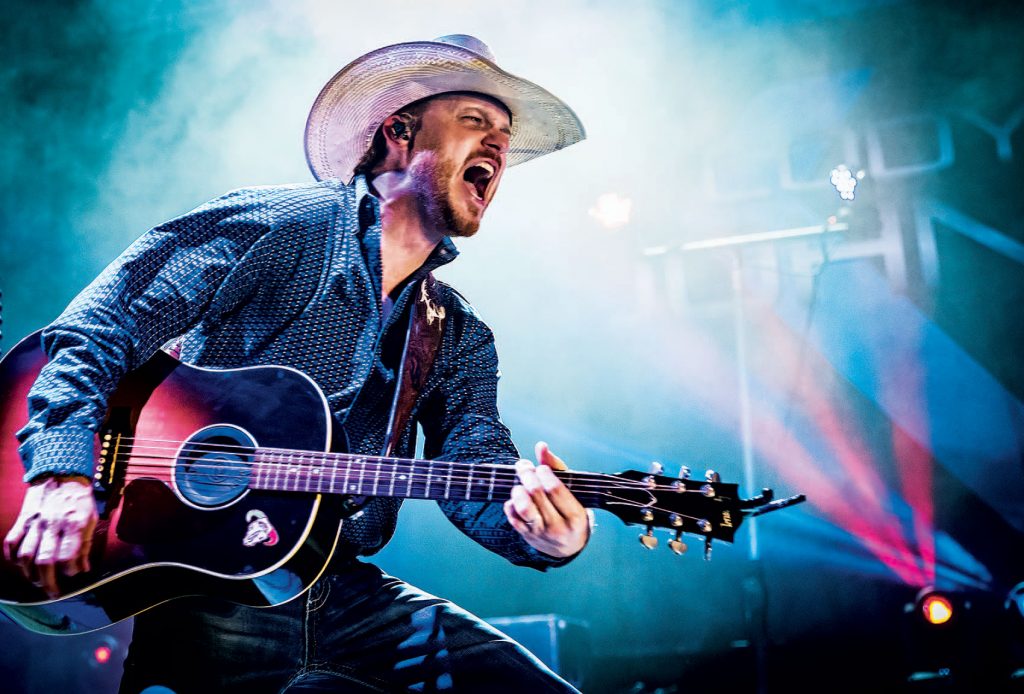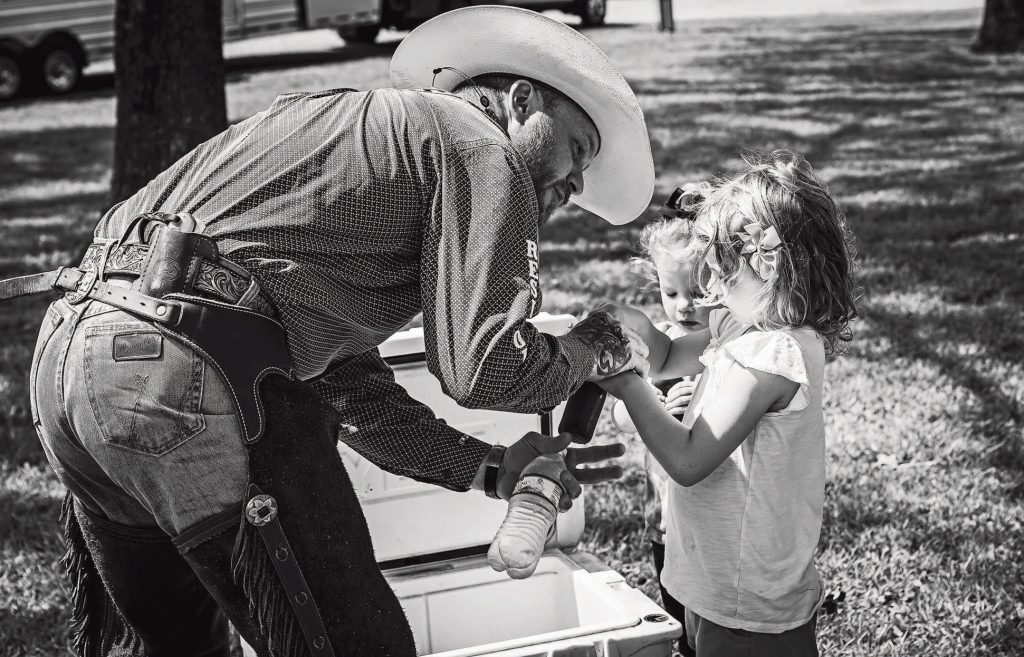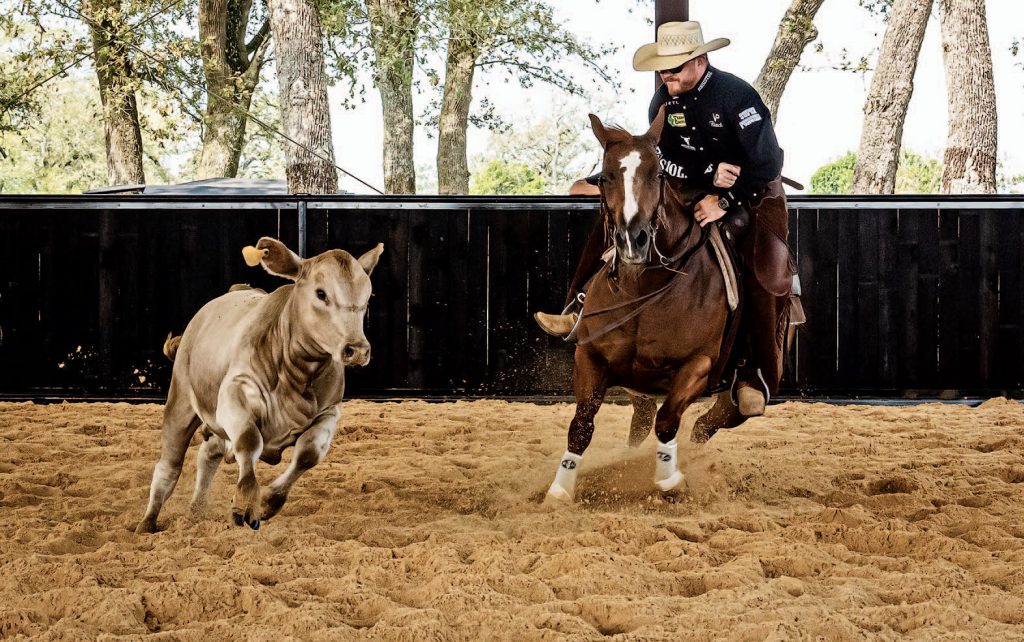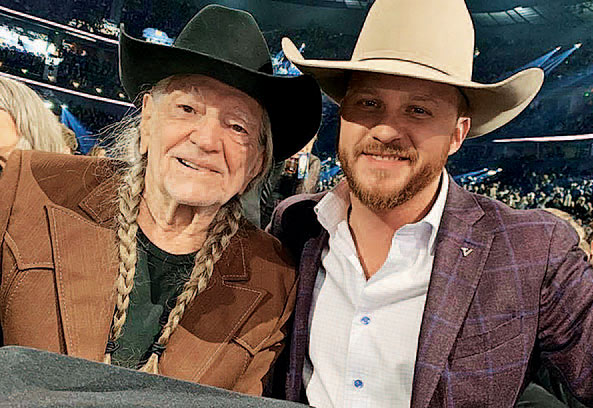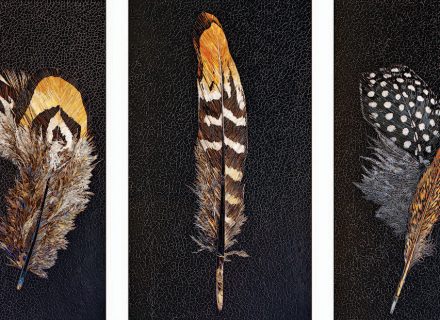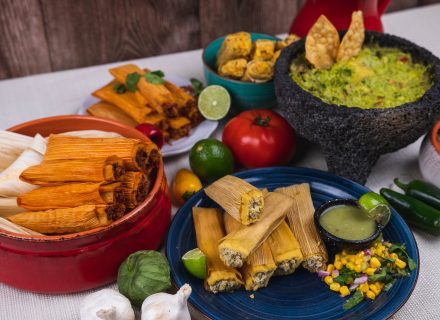The rising country superstar talks about his journey so far, from rodeo to radio.
This is how you know Cody Johnson is part cowboy and part country singer: When Cowboys & Indians visited earlier this year with the 34-year-old country star on his tour bus in San Antonio, he was getting ready to take the stage for a concert at Cowboys Dancehall. But he was also preparing to train for team roping in the Bob Feist Invitational in Guthrie, Oklahoma.
“I always have my head set that if you don’t ride, you ain’t no cowboy,” Johnson said. He started as a little boy growing up with The Lone Ranger and John Wayne as role models. And although his path to country music wasn’t a direct one, it’s been plenty fruitful. For the last 14 years, Johnson has been a fixture on the touring circuit, sold 260,000 albums, and played Rodeo Houston in 2019 to a sold-out crowd of 74,117.
Read on for our conversation with the in-demand vocalist who, at the time of the visit, was also gearing up for this year’s release of both a new double album and a biographical documentary.
Cowboys & Indians: You weren’t born into the rodeo life like so many bull riders are, so what originally inspired you to make a run at it?
Cody Johnson: I watched The Lone Ranger all the time when I was a kid. It was my favorite — those old black-and-white shows with Clayton Moore. And I would watch a lot of Lonesome Dove. And a lot of John Wayne movies. I’ve pretty much seen every John Wayne movie. I was just drawn to his characters. ... My dad rode horses for the state [of Texas], but he’s not a cowboy. He doesn’t go out and rope and ride. I think you have to feel there’s something inside of you.
C&I: So, it was pure gut instinct to be a cowboy?
Johnson: Well, the bull-riding thing was actually an accident. My friend was a welder, and he asked me to come check out a bull-riding pen he’d just welded. I was watching these guys ride, and they were like, “If you ain’t a bull rider, you need to get out of the chute and go sit in the stands.” I was like, “I’m not scared to get on one.” So I borrowed a rope, some gloves and spurs, got on one, and got my ass kicked. I was only on for about a half a second before I got the crap stomped out of me.
C&I: Then why’d you ever go back?
Johnson: I kept going back. Again and again and again. I didn’t have the talent most bull riders had, because they start on calves and steers and learn the basics. But I basically just jumped into water and prayed not to drown. Eventually, I would ride one here and there, and it gave me that little glimpse of hope that I could do this.
C&I: So how old were you when you first rode a bull? And then when you rode your last bull?
Johnson: I was 15 when I started and I rode until I was 19. I truly believed that I was going to get it. And sometimes I did. I’ve got recordings of me riding, and I wasn’t bad. But it’s like giving a drug addict just enough to be addicted. You’re always chasing that. And I always thought I was going to be a world champion in the Professional Rodeo Cowboys Association. But that takes years of preparation that I did not have, maturity that I did not have, and an athletic ability that I did not have.
C&I: I’m assuming this was right around the same time that you worked in the Texas prison system. What was that like?
Johnson: I was around the prison system my entire life because my dad worked there for 32 years. I started there when I was 18, just because that’s what my dad did. ... I worked in intake first, and it was an eye-opening experience. Then I moved to the Goree unit — a sexual-offender treatment program unit — and then I worked in maximum security. And then I rode horses as a field boss. Eventually, the warden sat me down and said, “You need to quit this job and go play music. You’re already playing so many gigs that you’re having trouble showing up for work on time. You just need to go. Prison will always be here.”
Johnson spends offstage time with his wife, Brandi, and two daughters in Texas. He credits Brandi for backing him in the struggle-filled early years of chasing the neon rainbow.
C&I: That sounds risky, to give up a steady paycheck, benefits, insurance, and a pension. What did your better half, Brandi, think?
Johnson: Do you know what she did? When I quit the prison, she quit going to college and took two jobs so that we could go out and play music. And we didn’t make any money for the first two years. That woman is down. That woman is down for the cause.
C&I: Are you ever going to write songs about “doing time” in prison? It’s been a while since country music’s had a solid prison song.
Johnson: I think that the prison stuff will probably show up in my writing later on. It’s much like how the bull-riding stuff happened, and then years later after I’d let it go, I addressed it in the song “Dear Rodeo.” But I’ve never addressed the dark side of what happens in prison, just because I think I would have to address things within myself. But it will happen. Songwriting’s always done that for me.
C&I: When did you have your epiphany that it was time to hang up your ropes and spurs?
Johnson: Well, first I tried to go to college. And I had a part-time job shaping cowboy hats in Huntsville, Texas, at Baskins. So, I was working plus playing music on the side and going to college on the side. I even skipped my first English final to go play a gig. So I knew college was out. I just wasn’t college material. And at that same time, I was trying to hit some of the minor league rodeos. I would buck off, I’d go to practice again, I’d ride more, and then it would just be so frustrating because I never could make it happen when it needed to happen. I just finally said, “This is not working out.”
C&I: In a way, you make it sound like the rodeo took you for a ride. There’s a line in “Dear Rodeo” that says, “I’m jaded, I hate it.” Does that sum up your real-life feelings about giving up on the bull-riding dream?
Johnson:That was a pretty dark period for me because I just felt like a loser. I mean, seriously, it’s a failure that set in so hard that I became a detriment to myself. And at 19 years old, I wanted to forget about it and party and play music. And then it was like, OK, this music thing could work. I firmly believe that was my path. I had to get my hopes up and fail, and God allowed me to fail. If I hadn’t lived all that, I would never have been able to move on and to write songs like “Dear Rodeo.” I’ll take that any day of the week. Back then, I felt like the bull riding was what was going to make me a cowboy. But bull riding has nothing to do with being a cowboy. It’s your heart. It’s your mentality. It’s your moral code. It’s in your standards for what you will and will not put up with. It’s knowing that you can lend a helping hand to anybody, but if you’re the one down in the dirt, you have to pick yourself up and dust yourself off and go back to work. That’s what cowboy means to me.
Rodeo is still very much a part of Johnson’s life, even though the balance has shifted more in adulthood to his country music career.
C&I: And that’s what “Dear Rodeo” is all about. Did you realize when you wrote that one how powerful it could be for anyone, not necessarily just bull riders?
Johnson: It wasn’t until after Dan Couch and I wrote it that I started to understand what we had done. It gave me closure. That song helped me let go. And then it helped me to play it with the perspective of helping other people. If you fall down on the ground, do you think, “Well, I’m already down here, so I should just stay here”? Or do you think, “I’ve got to get back up and try again”?
But bull riding has nothing to do with being a cowboy. It’s your heart. It’s your mentality. It’s your moral code. It’s in your standards for what you will and will not put up with.
C&I: You make it sound easy, as if sometimes the songs write themselves. But early on, when you started booking more and more gigs, were you just out there playing country cover songs?
Johnson: No. I was playing the songs I’d written while I was on the road rodeoing. So from the very beginning, my music was based around the rodeo. My first album that I made by myself a year after I graduated high school — Rodeo Blues in 2006 — was all about that cowboy life. I’d had people tell me that country music had to be relatable, so I worried that people wouldn’t relate to my rodeo songs. But they did then and they do now. And I cannot stand songs about pickup trucks and short skirts. It’s demeaning to women. I have two daughters. And if a boy wanted to sing a song like that to my daughters, I would be pissed. Because those songs are not respectful.
C&I: After writing from your experiences, you finally got a songwriting deal in which you found some new pressures to produce new stuff...
Johnson: I did. When I signed my deal, I had to write 12 songs a year. But I wrote more like 30. All I would do was go on the road, fly to Nashville, and write, write, write. Go on the road, fly to Nashville, and write, write, write. Again and again. After that, I felt like I had squeezed the sponge as much as I could. That was when I started hearing about great songwriters like Travis Meadows, Tony Lane, Jeffrey Steele, Terry McBride — and I could name you maybe 40 more — who couldn’t get their songs cut because they were too “country” for country music. So, we said, “Send us the songs that you can’t get cut.” The amount of songs and the quality of the songs was incredible. And what that did for me is it opened up the right brain versus the left brain, because then when I was listening to these songs I’d be thinking, “The demo sounds hip-hop-ish, but could I take that song and make it me?”
C&I: What does it feel like to walk out onstage and see tens of thousands of fans anxiously awaiting your voice?
Johnson: There’s a part in Lonesome Dove when the storm is blowing in, and Gus looks at Woodrow and says something like, “Well, Woodrow, I guess it’s time to figure out whether we was meant to be cowboys or not.” And he rides off. That’s how it feels. The first time I stepped on a big stage, I looked around and thought, “This is right where I belong.” Just zero nerves. It’s stupid how at home I feel up there. But still, every single night, it’s very humbling. I am very much addicted to that. I feel like what I do brings positivity and happiness and joy.
Johnson is releasing a new and highly anticipated LP, Human: The Double Album, on October 8. It includes a special collaboration with Willie Nelson on the tune “Sad Songs and Waltzes.” And Johnson’s revealing full-length documentary, Dear Rodeo: The Cody Johnson Story, was scheduled at press time to hit theaters in August. Find out more about the movie at codyjohnsonfilm.com.
Photography: (All images) courtesy Warner Music Nashville
From our October 2021 issue







